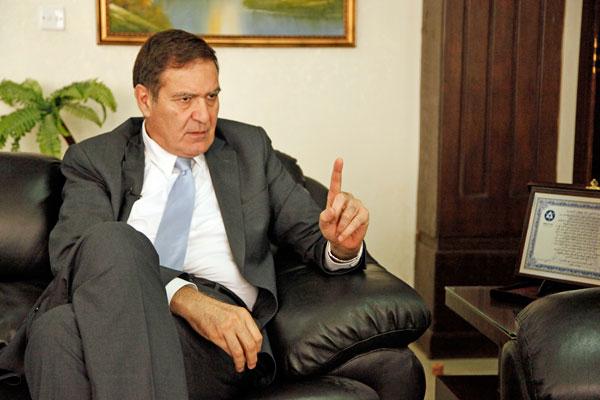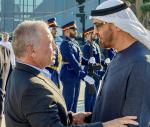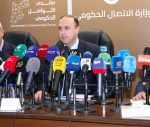You are here
Jordan eager to reach win-win nuke deal with US
By AP - Jul 05,2016 - Last updated at Jul 05,2016

Khaled Toukan, chairman of the Jordan Atomic Energy Commission, speaks during an interview on Sunday in Amman (AP photo by Sam McNeil)
By Karin Laub
The Associated Press
AMMAN — Jordan is eager to reach a nuclear cooperation deal with the United States after a long impasse over uranium enrichment and both sides appear ready to compromise, the Kingdom's nuclear chief said.
An agreement would give Jordan access to US technology, including small modular reactors that could fit well into the country's fledgling nuclear energy programme, said Khaled Toukan, chairman of the Jordan Atomic Energy Commission.
For now, the centrepiece of Jordan's programme is a $10 billion deal with Russia for two larger nuclear power reactors, to be built by 2025.
Toukan acknowledged in an interview that financing is not locked in yet and that Jordan is still looking for a third partner.
The probability of the two reactors being built is "70 to 75 [per cent] ... it is not 90 per cent", he told The Associated Press on Sunday at his office on the edge of Amman. He said some large firms approached by Jordan expressed interest and that he believes the problem can be solved.
Even if the Russia deal fell through, "we will still pursue nuclear, but maybe not the big reactor, maybe we will have these small modular reactors," he said.
In any scenario, an agreement with the United States could be key.
"It is important for us to have the US on board," Toukan said. "Even if we build the Russian reactors, you might have small modular reactors for water desalination in the future."
Jordan launched its nuclear programme almost a decade ago to address the country’s worsening energy woes. Jordan has to import fossil fuels for 98 per cent of its electricity, demand keeps rising and the country buckles under growing debt from energy imports.
Jordan needs a mix of alternatives, including nuclear energy, said Toukan.
Domestic critics say Jordan rushed into a risky programme it cannot afford at the expense of developing solar and wind energy and that Toukan’s commission lacks transparency and oversight.
Toukan ignored warnings by experts voicing safety concerns, said Saed Dababneh, a former vice chairman of Jordan’s nuclear regulatory commission. “There is now, in my view, only one way... to prove that our concerns are justified, that is for a disaster to happen,” Dababneh wrote in response to a request for comment.
US-based expert Chen Kane said nuclear energy may not be the right fit. “I think nuclear energy is a way too expensive, risky and unpredictable option” for Jordan, said Kane, director of the Middle East programme at the James Martin Centre for Non-proliferation Studies.
Toukan said Jordan has submitted to stringent international oversight, including a review by a high-level International Advisory Group.
In its report, to be published later this month, the panel said Jordan is on a “well-planned path” to acquiring nuclear energy, including training local scientists at a domestic research reactor.
The panel said Jordan could do more to bring the public on board and should get more international experts involved. Financing of the two power reactors appears “somewhat nebulous” and the 2025 deadline for completing two reactors is “overly optimistic”, the report said.
Meanwhile, revived nuclear talks with the US could open the door to alternatives, such as the smaller reactors.
Talks stalled after Jordan refused to drop the right to pursue future uranium enrichment capabilities, which can have peaceful and military uses.
As part of non-proliferation efforts, the US insisted that Jordan forego that right, as the United Arab Emirates previously did in a deal with Washington. Jordan, which has some uranium deposits, said it should not be asked to close the door to future enrichment for peaceful purposes.
Toukan suggested that there is room for compromise.
“We are trying to find an intelligent way in the middle to more or less give the US assurance about non-proliferation, safeguards and so on, but at the same time not relinquishing rights under international treaties,” he said.
The US embassy in Jordan said it hopes a deal can be reached that reflects the US-Jordan partnership and a “shared commitment to nuclear non-proliferation, safety and security.
Related Articles
AMMAN — Jordan is in talks with several international companies to be partners in the country’s first nuclear plant by providing necessary t
AMMAN — Jordan Atomic Energy Commission (JAEC) received a preliminary report from the International Atomic Energy Agency (IAEA) indicating t
AMMAN — His Majesty King Abdullah on Monday received a delegation from the International Advisory Group (IAG) tasked with reviewing Jordan’s














